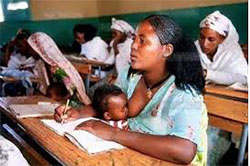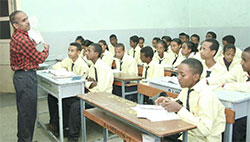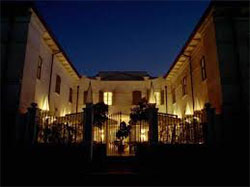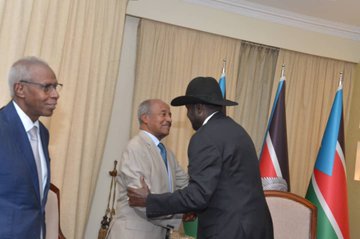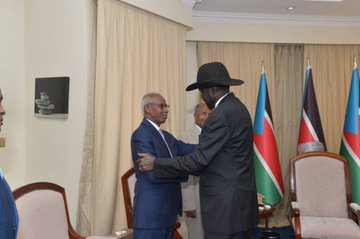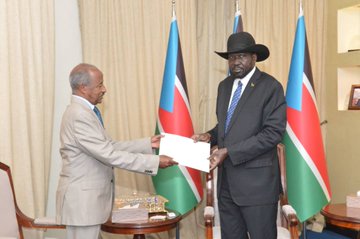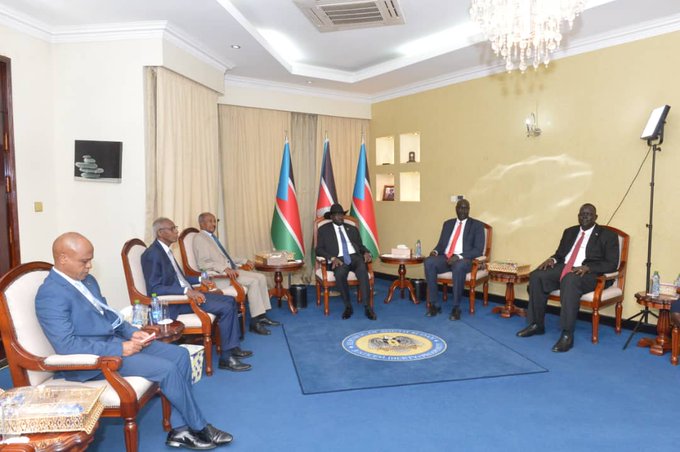Eritrea’s Finest Immunization In-vestment Aiding Generations
Saturday, 14 September 2019
Written by Shabait Administrator
http://shabait.com/categoryblog/29267-e ... nerations-
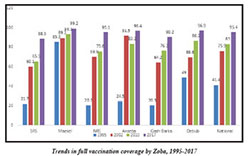
Vaccination or immunization programs aim to keep a healthy person healthy.
The government of Eritrea has been committed to such programs and considers health care as an ultimate societal right. As a result of its commitment, the country has been honored and awarded for several achievements.
Immunizing people in Eritrea has been practiced for long with five traditional vaccines (BCG, Polio vaccines, Measles vaccine, Diphtheria vaccine and Pertussis vaccine). In 2002 Hepatitis B which prevents liver infection and in 2008 Haemophiluenza Type B, that prevents upper respiratory system infection, were introduced in the country. Later, the Rota vaccine that prevent children from severe diarrhea and Pneumococcal vaccine from infections of lungs, brain and blood were introduced. All in all, at present there are eleven vaccines given to children under the age of one that can combat more than 35 possible diseases.
Vaccines are also given to people who travel to pandemic disease prone countries. The National Immunization Program in the Ministry of Health (MOH) makes sure these people get vaccinations relative to the disease available in the countries. When it comes to a child, the director of the National Immunization Program in MOH, Mr. Tedros Yehdego, says that the necessary vaccines have to be given to a child within a year after birth. If done properly the child is all safe and can enjoy life like other people do. According to the words of the director, vaccines are not like syrup, syringes or capsules; rather they are biological products that should be taken care of until they reach the child or the needy party. Vaccines are life automated that sensitize inside human body and help the person increase immune system against various ailments, he adds. The vaccines imported from various parts of the world are reserved in space that is 2o to 8oC optimal temperature until they are given to the child. They need intensive care and attention as they are sensitive elements.
In the early 1990’s vaccination rates provided for less than a year age children were only limited to less than 10%, compared to today’s 98% coverage. Eritrea’s progress in immunization is dramatic when compared with other African nations. In 2009, Eritrea was awarded by GAVI, in Hanoi, for scoring the highest immunization coverage rate from among 72 developing African and Asian nations. Again in 2012, it managed to eliminate Measles totally and was awarded half a million dollars to cover the next five years expenses of vaccines. Once more, it received another award in 2016, for consistent national level vaccination coverage and for scoring the highest from the East and South Africa block. The WHO and other international health organizations monitor the endeavors inside the country’s health sector, and particularly in immunization, and reward the nation. The reason behind all this spectacular achievements, says Mr. Tedros, is the awareness of the society about what to do for its children. This reduces the death toll that occurred years before. Another is the government’s assurance in providing the health sector transportation access to remote places, purchasing vaccines, subsidizing fuel for health workers to go on campaigning in outreach sites.
Eritrea’s approach to immunization and vaccination has been based upon an array of technically and financially strong international organizations and partners, including the United Nations Development Program (UNDP), UNICEF, the WHO, Japan International Corporation and the GAVI Alliance. Locally, civil society organizations such as the National Union of Eritrean Women (NUEW), the National Union Eritrean Youth and Students (NUYES), the PFDJ also have immense contribution toward public awareness. The international partnerships have increased supplies such as vaccines, syringes, and vitamin A capsules, while strengthening support for the development, production, and dissemination of social mobilization materials, regional plans, and logistics. Most importantly, the Eritrean government has encouraged the expansion of outreach facilities with 450 currently providing vaccines every month or two, organized mass volunteer campaigns, and generally exhibited a high commitment to
achieving financial sustainability and full ownership of vaccine financing.
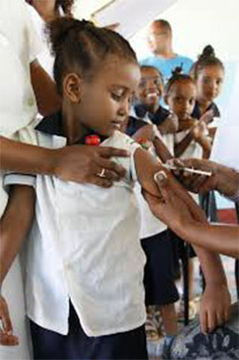
Wherever people, vaccines are scheduled for children in terms of the sixth, tenth, fourteenth week doses and the final Measles dose is given at the ninth month. The health policy of the immunizing institution dictates that vaccines have minimum intervals but not maximum intervals which give the meaning any child may skip the minimum prescribed period of vaccination but shouldn’t be given the dose before the minimum interval after the last vaccine. So better late after the last dose than taking them before the time matures. This can maintain the development of the gradual and proper immune system in the body of the child. Taking the doses at the right time prevents infection and is cost effective.
The management structure of the National Immunization Program (NIP) in the MOH is well organized and functions impartially at every spot in the country. The NIP is organized at national, subnational (regional) and 58 districts.
Vaccination providing health institutions in the country are 295 from the total 347 health facilities. Medical supplies are also taken care of where no stock outs are seen ever as the institution manages its inventory before it actually runs out. Vaccines for next year are ordered in the current year and are calculated according to the birth rates expected.
Participation of communities in delivering vaccines to geographically unsuitable areas is imminent. Nomadic people or those who can’t be reached easily are assisted by outreach sites and the community also uses domestic animals to deliver logistics to its children and women who cannot move to the outreach sites.
Ultimately, the result has been that more people – particularly vulnerable populations, nomadic peoples, women and children in rural areas– have received important vaccinations and immunizations. As testament to Eritrea’s immunization and vaccination efforts and effectiveness, consider its DTP3 coverage figures. DTP3 is amongst the most prominent immunization series, and helps to prevent diphtheria, tetanus, and pertussis (whooping cough). Administered in 3 separate doses for infants (at one month, one month and a half, and three months), DTP3 coverage rates provide a rough, yet quite useful, gauge for how effective a country is in providing immunization for children. According to the WHO, in Eritrea, DTP3 immunization coverage has been at 99% since 2008, while its average immunization for the years 2000-2012 was above 95%. By comparison, average DTP3 immunization figures across the years 2000-2012 for Eritrea’s neighbors were as follows: Djibouti at 74%; Ethiopia at 46%; Somalia at 37%; Sudan at 78%; Kenya at 81%; Uganda at 67%; and Africa at 64% (Fikrejesus Eritrea Profile 2016).
In case of global epidemic outbreak like Ebola or Zika, the strong pillars of the institution (government commitment, management structure and community participation) will be enough to react, respond and control according to the director. If the trend of having immunization keeps going as it is, the task of controlling global pandemics remains only that of detecting the new cases as the population already has developed the required immunity. For instance Polio cases have been eliminated for almost 12 years, yet the institution is continually engaged in Polio surveillance and reports if cases are witnessed anywhere in the country. According to the policy of the immunizing institution anyone who doubted any other person for signs of Polio is encouraged to report and victim is immediately taken into central laboratory for checkups. Once in 2005, a similar case is found and every child under the age of 15 was made to get a polio vaccination that showed a quick response to the event. There are also checking points in subnational level where they control inlets from neighboring countries. In 2015 a five year work plan document was approved that complies with the International Health Regulations (IHR). When outbreaks such as Ebola took place in the West African nations, many health activities (preparation of health facilities, logistics and acknowledging people) were conducted in the country. The WHO recognizes these health activities, measures the efforts and rewards accordingly. Importantly, however, the country has begun to build upon its past successes and in recent years has started to implement expanded services to better ensure the health of citizens.Notably, Eritrea’s impressive immunization coverage rates are not restricted to DTP3. In 2012,’13, Eritrea’s measles coverage was 99%, well ahead of its neighbors: Djibouti was at 83%; Ethiopia at 66%; Somalia at 46%; Sudan at 85%; Kenya at 93%; Uganda at 82%; and Africa at 73%. Furthermore, in terms of polio immunization, Eritrea boasts a 99% coverage rate while rates for its neighbors are: Djibouti 81%; Ethiopia 70%; Somalia 47%; Sudan 92%; Kenya 82%; Uganda 82%; and Africa 77% (Fikrejesus Eritrea Profile 2016).
As recent WHO report discloses that Eritrea is the second country in Africa, including Tanzania that had completed the crucial costing phase of its pandemic readiness and response plans. It is set to face any pandemic disease if one should break anytime in the future. Moreover, it has begun to develop performance management systems at national, zonal and sub-zonal levels. In addition, the pre-elimination phase features a strengthening of malaria diagnosis and treatment measures at health facilities, and an expansion of optimal logistical capacities in each zone for targeted malaria elimination interventions. Keeping static and outreach immunization services to its people and maintaining the momentum and sustainable health track, Eritrea will ensure the safety of its children and people in general as the journey of immunizing continues.
_____________
_______________________
This would NEVER have happened in Eritrea:
